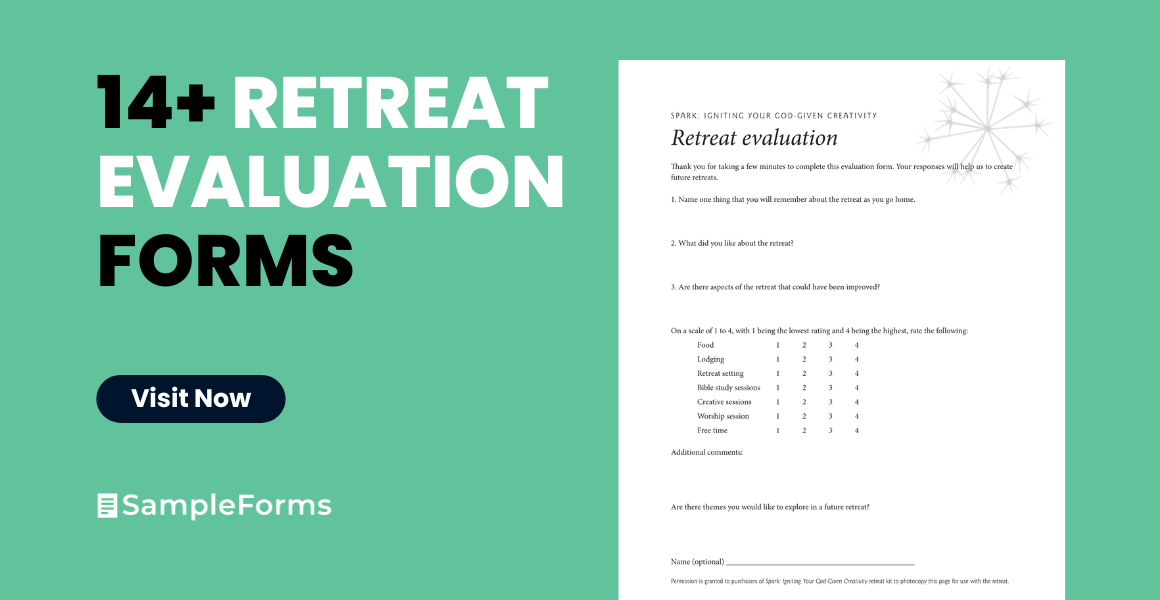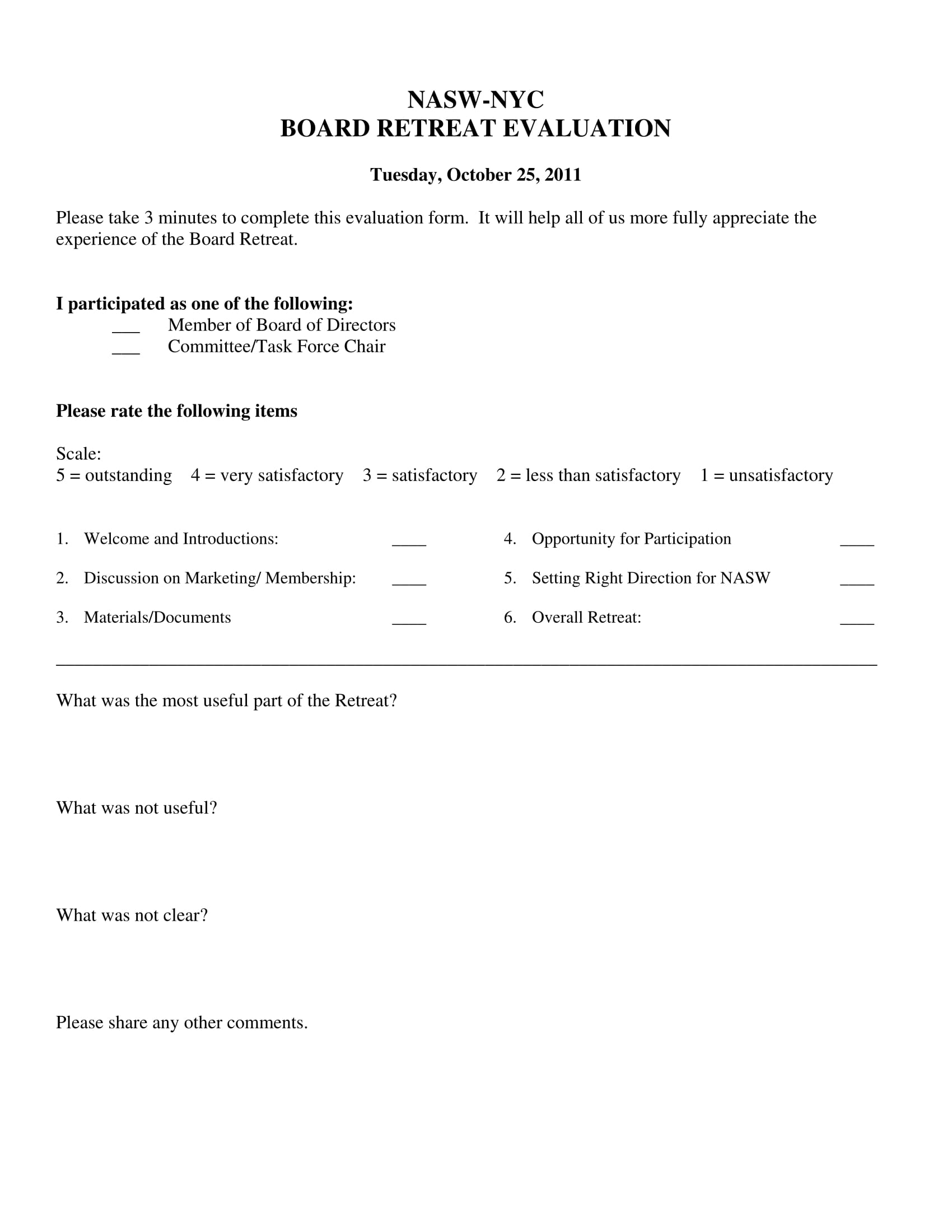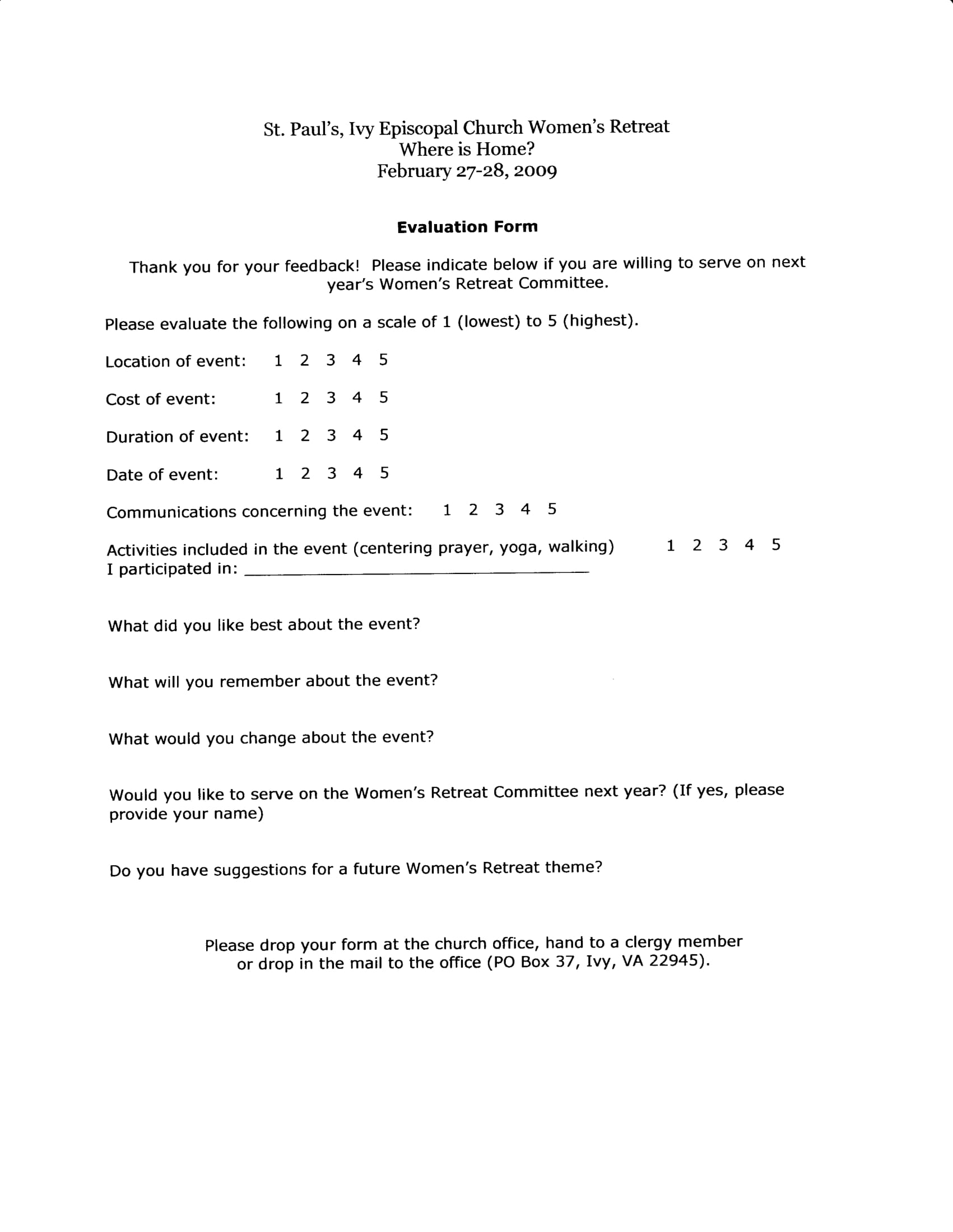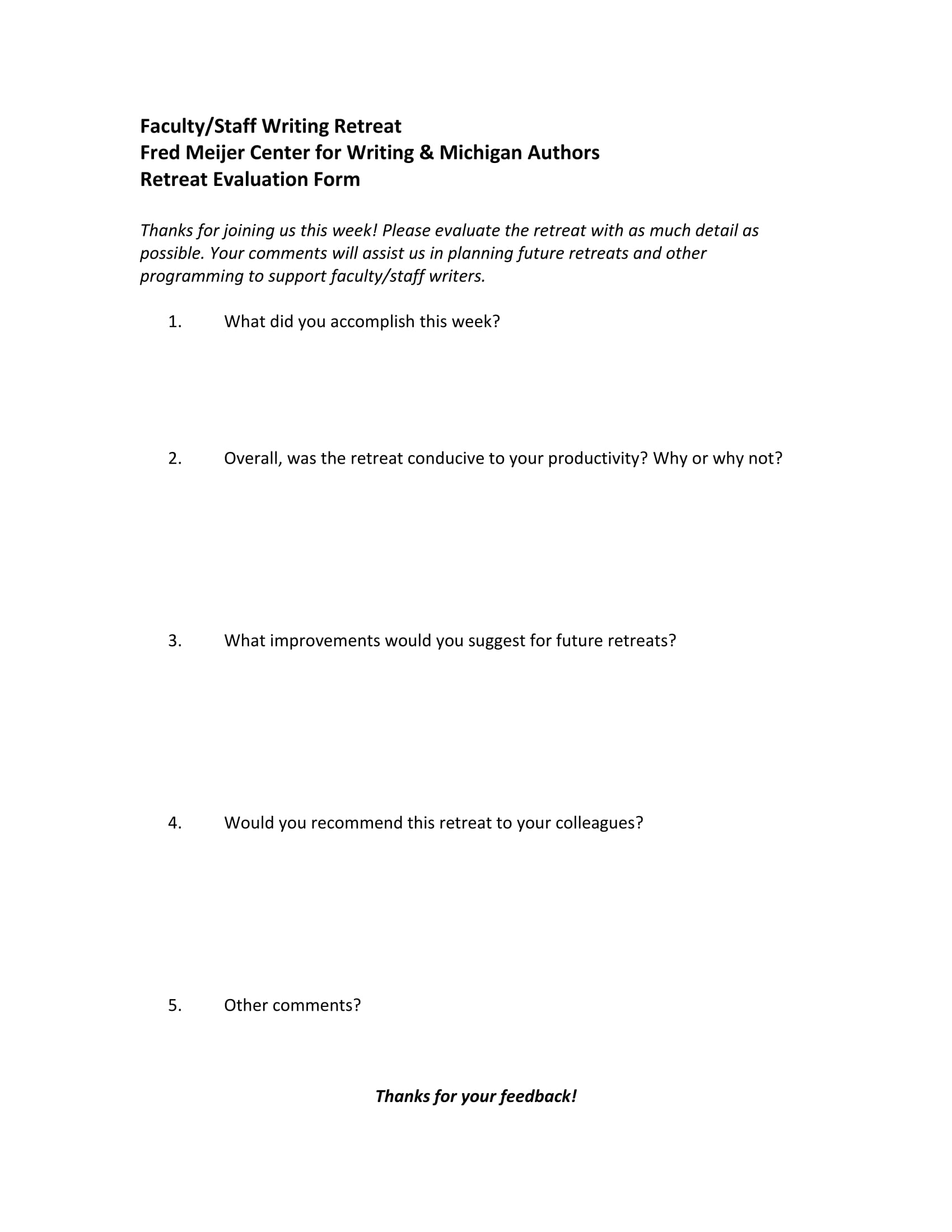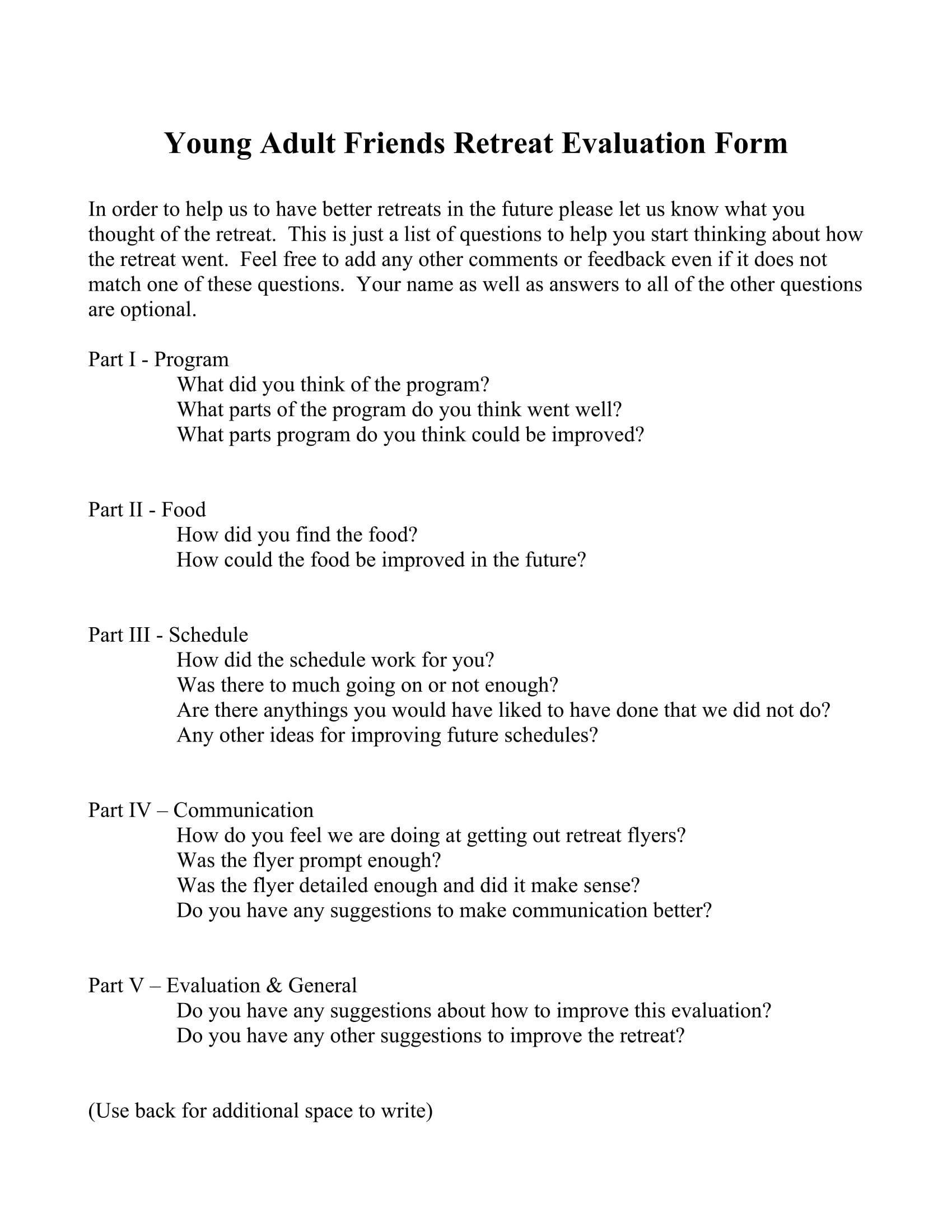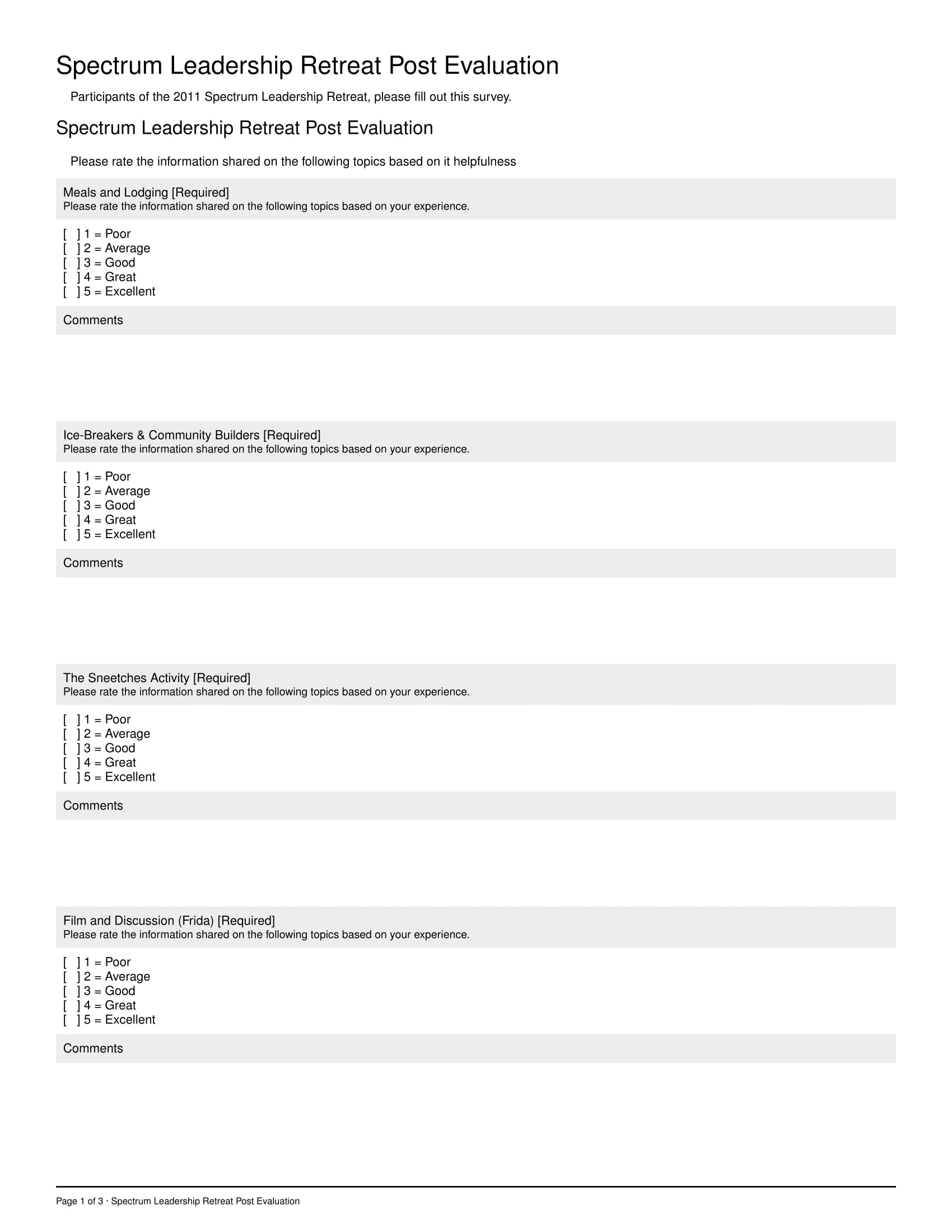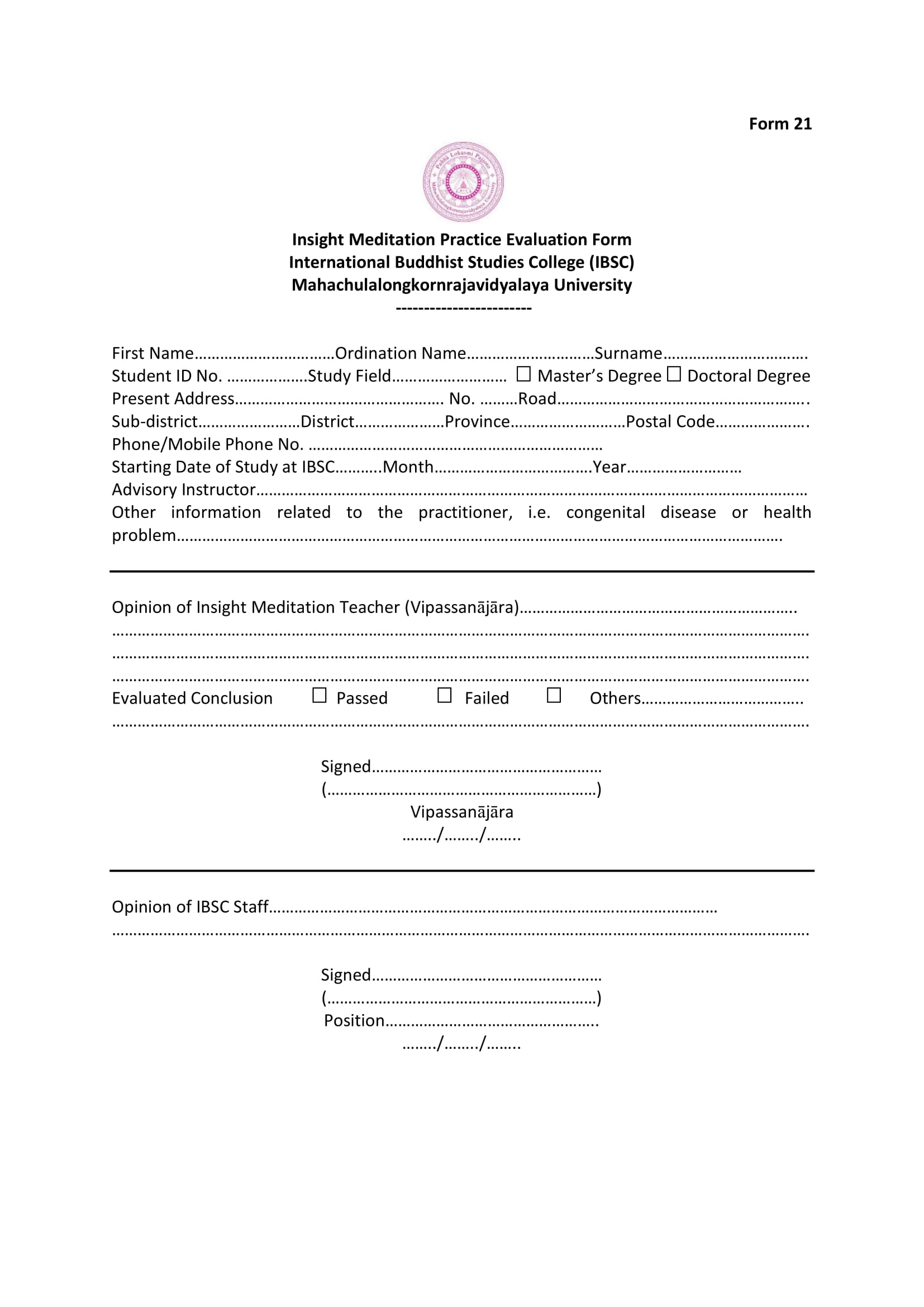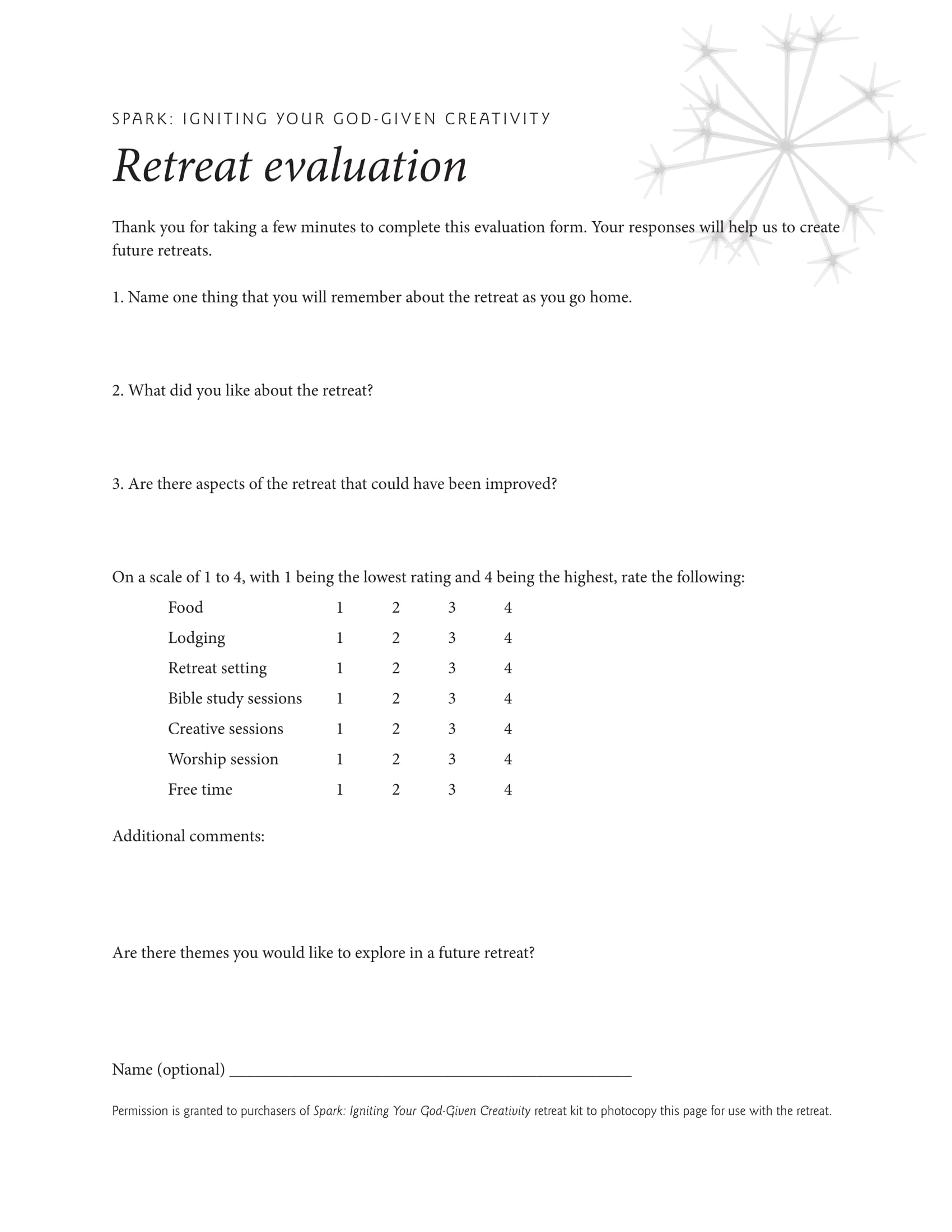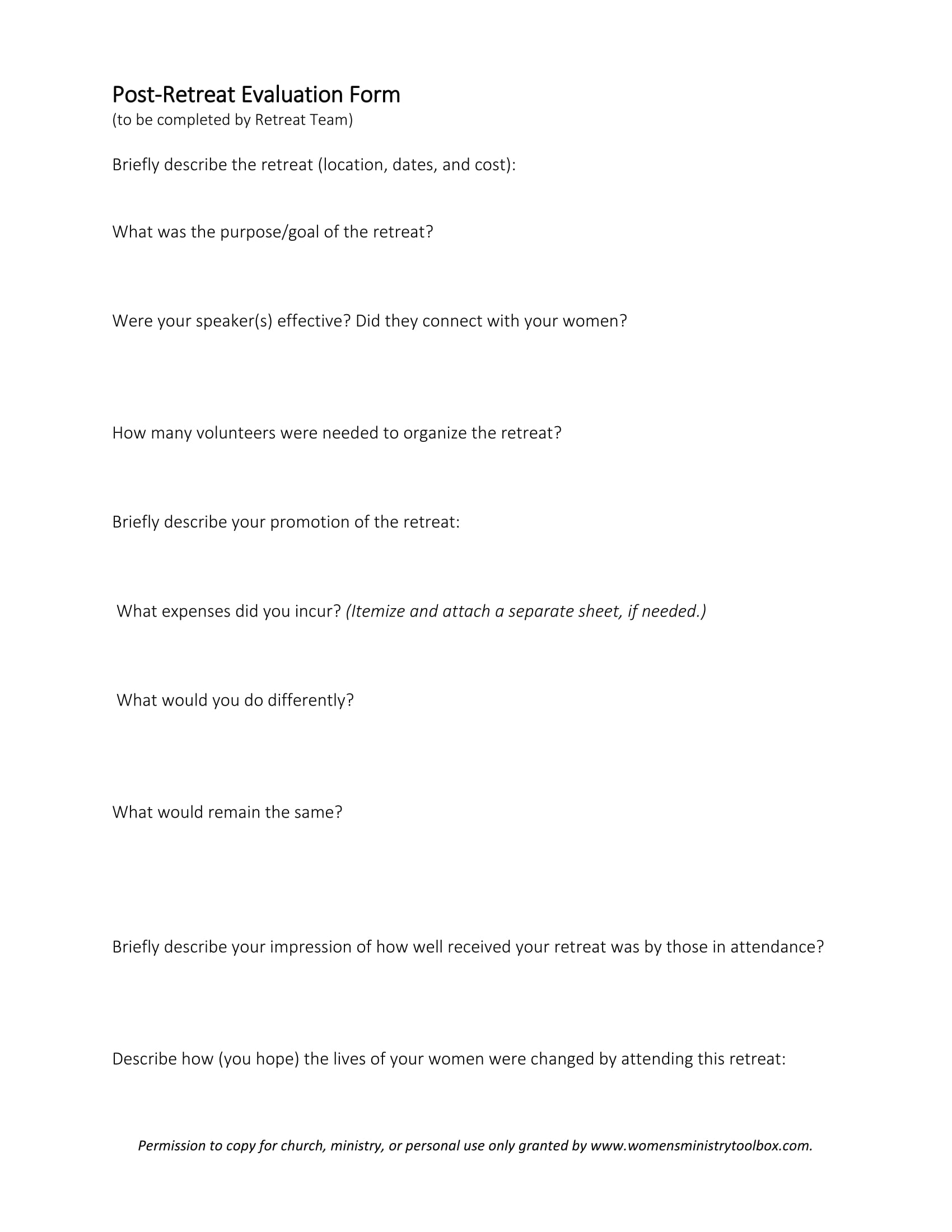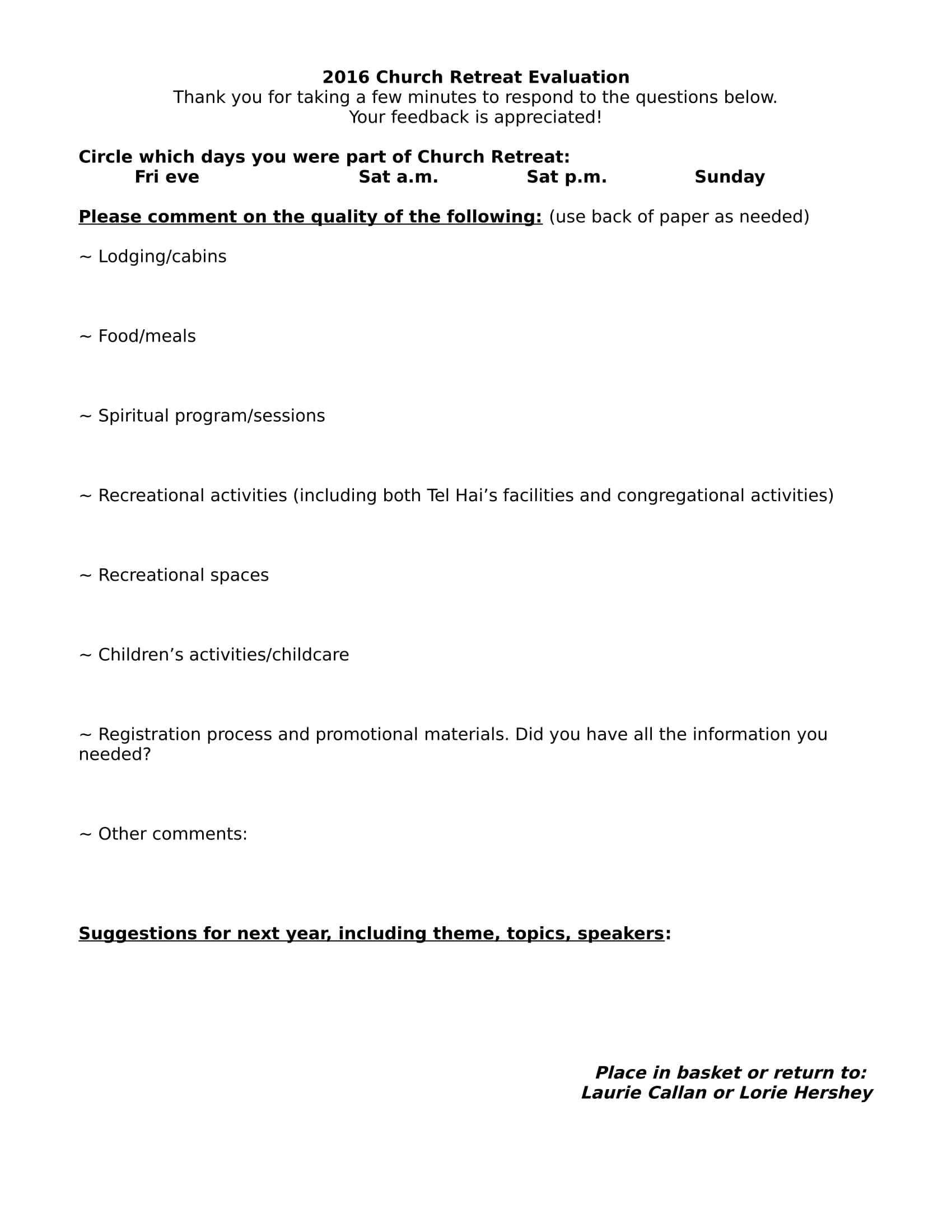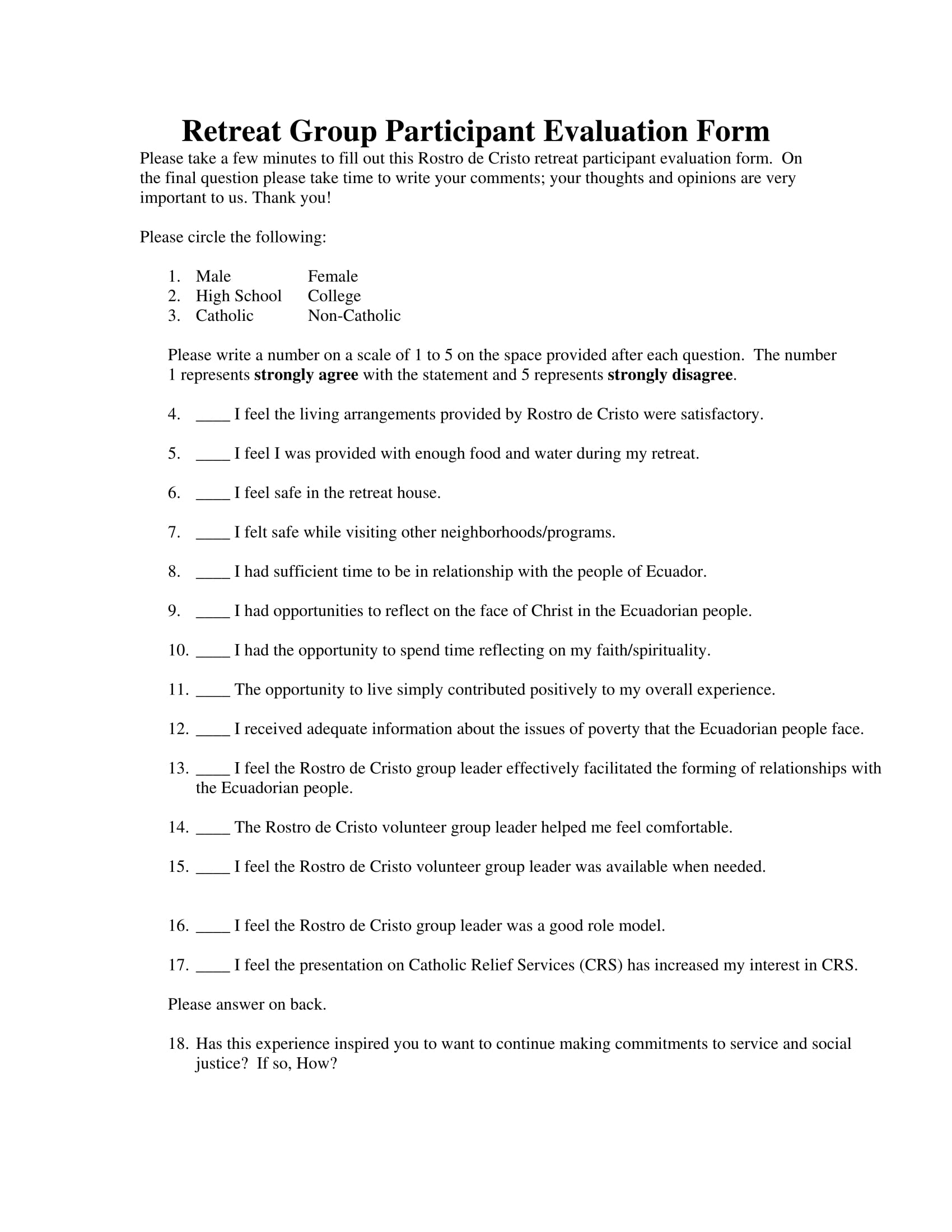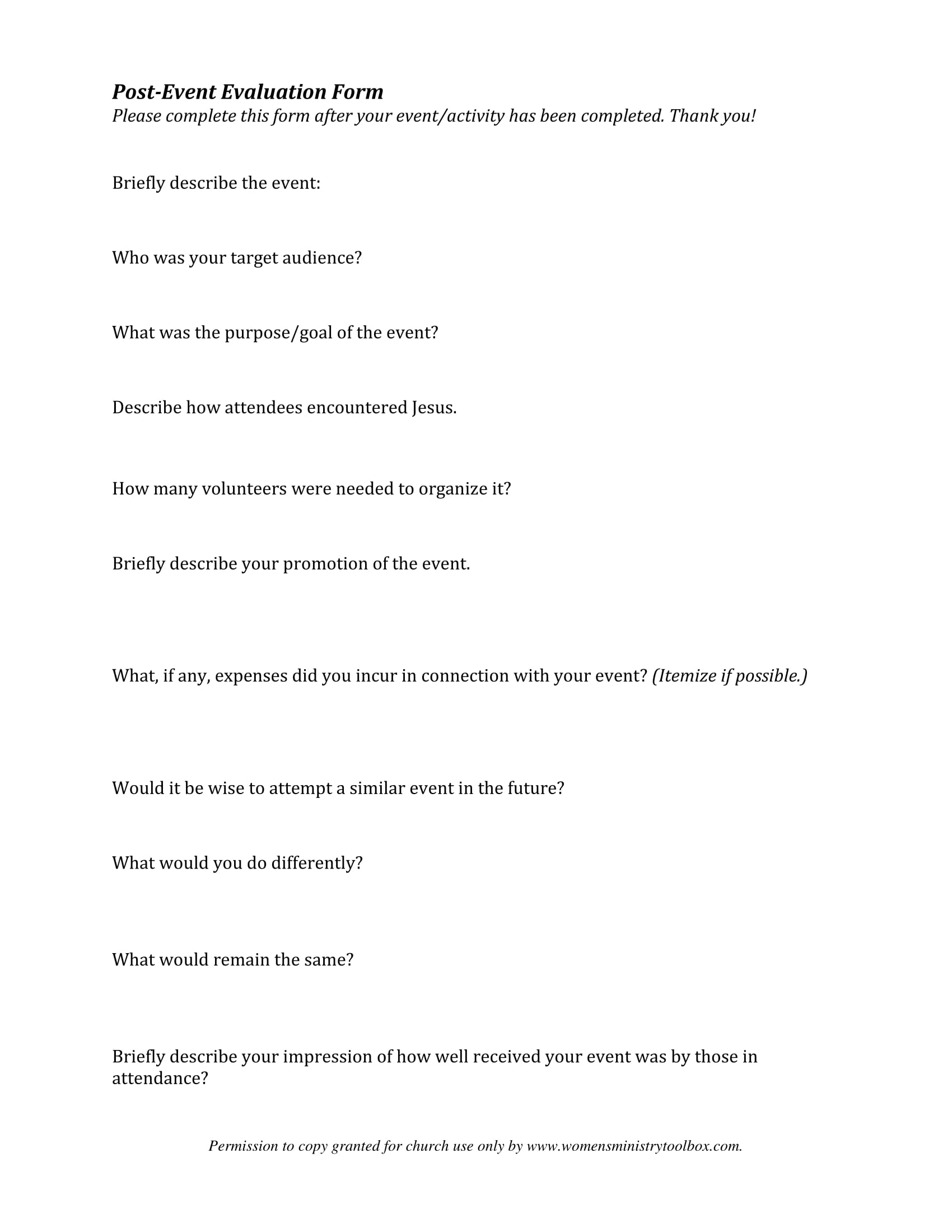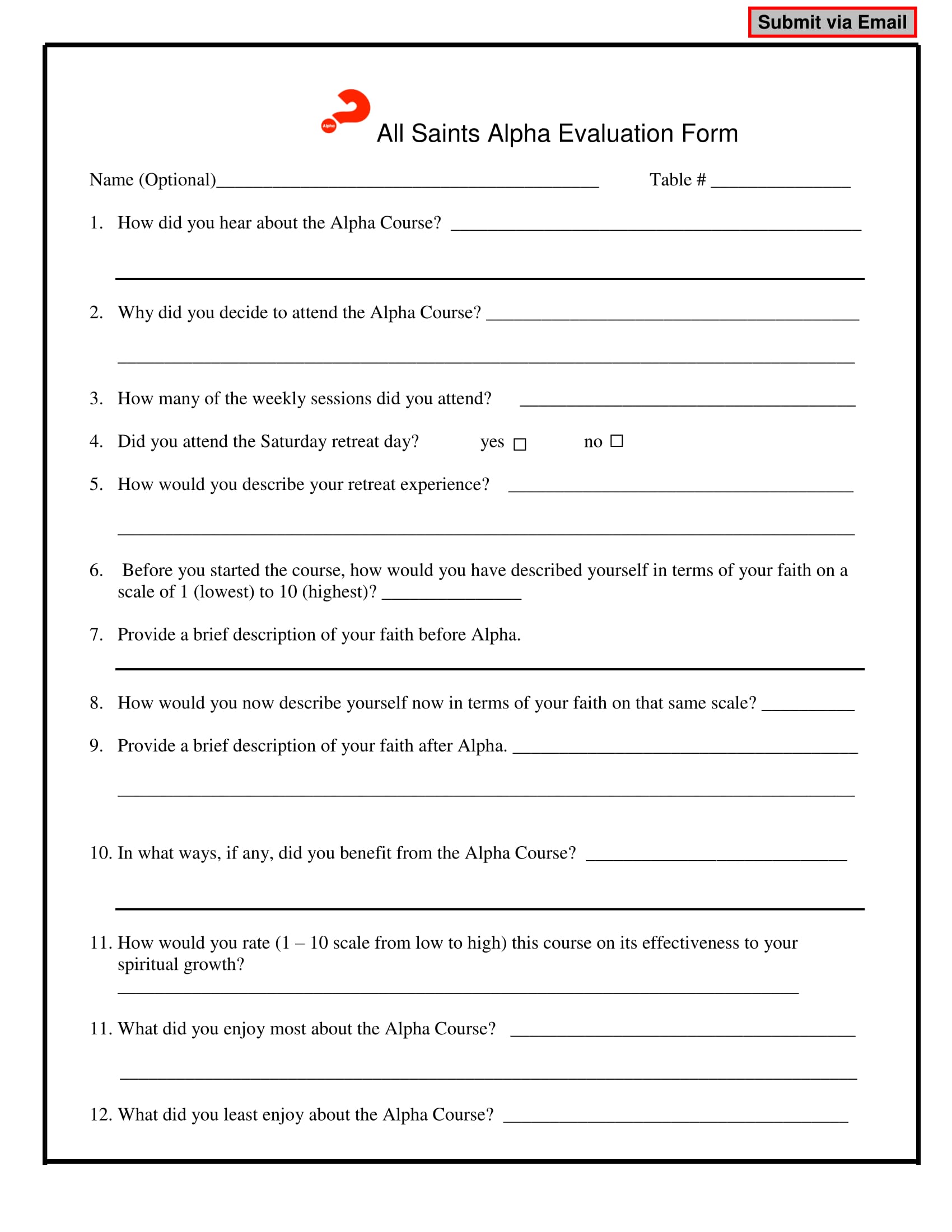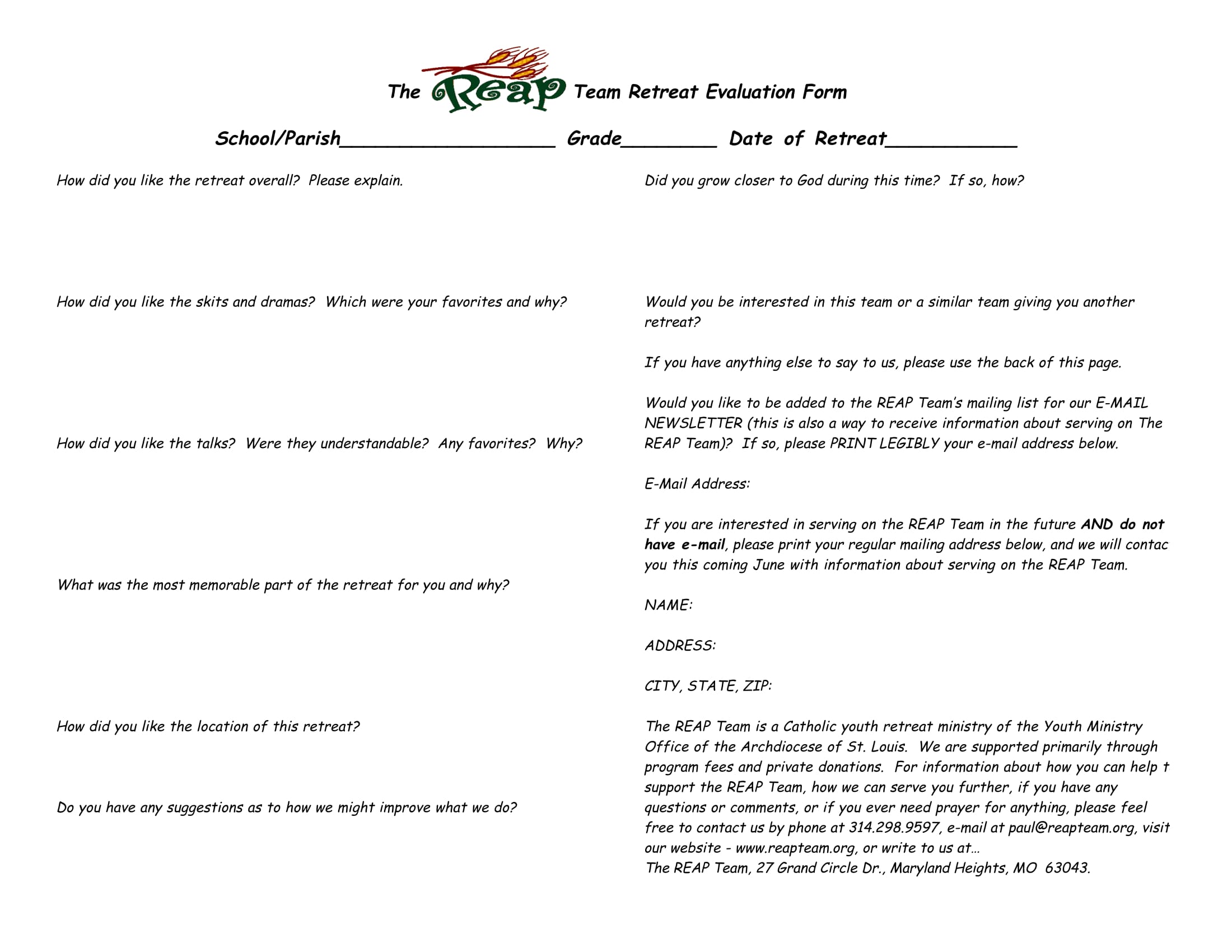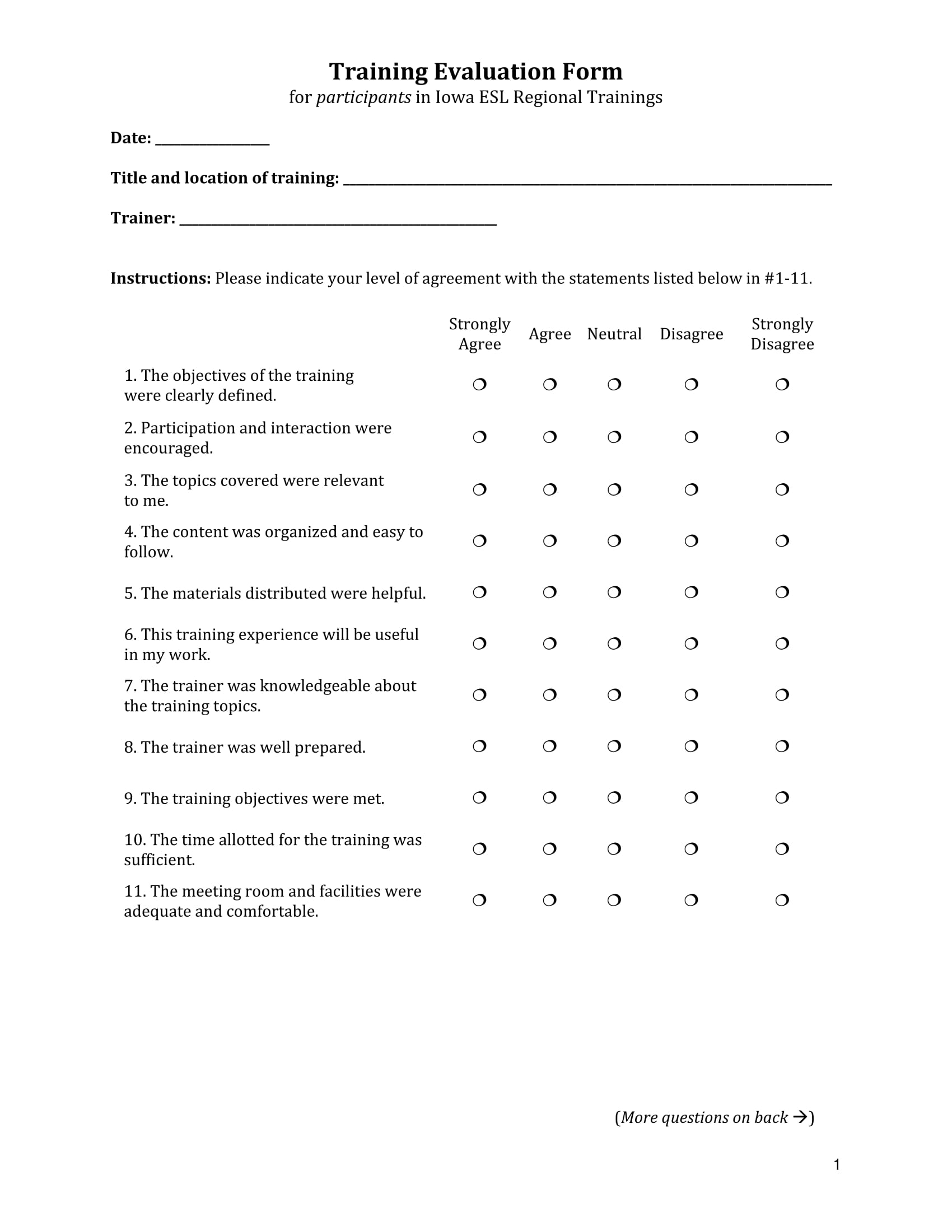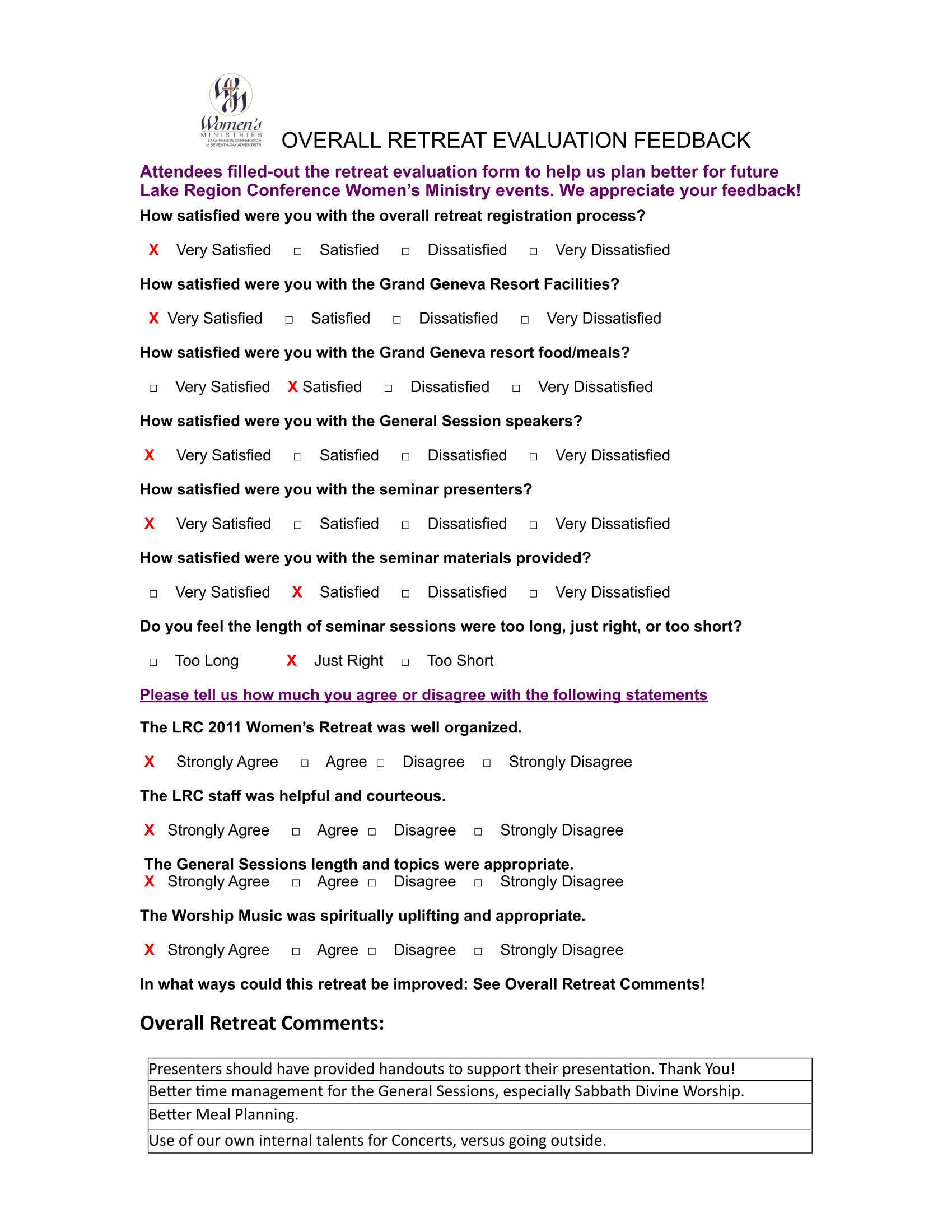Retreats are activities which are often done outside the busy streets and buildings of the city. This activity includes a set of programs wherein the individuals who have enrolled are expected to participate until the end of the retreat. Organizations who conduct retreats use varieties of legal forms and documents to assure that they will be meeting the requirements of the state with regards to hosting activities as well as the needs of their participants. A specific document which is commonly used by retreat organizers is a retreat evaluation form.
What Is a Retreat Evaluation Form?
A retreat evaluation form is a type of document which is effectively used for assessing the retreat as well as its outcome. People consider retreats as a way to reconnect with themselves and the universe which is why it is essential that the organizers of the retreat must fulfill and cater the expectations of each individual in the location. The evaluation form will be handed to the participants before and after the event. If the form is presented before the program has started, this means that the goal of the organization is to collect the expectations and thoughts of the participants with regards to the retreat. On the other hand, a post-retreat evaluation form is to aid in determining if the organization was able to meet the standards and satisfy their participants.
Board Retreat Evaluation Form
Church Retreat Evaluation Form
Faculty Writing Retreat Evaluation Form
Friends Retreat Evaluation Form
Leadership Retreat Post Evaluation Form
What’s in a Retreat Evaluation Form?
A retreat evaluation form has few yet significant areas and these are stated as follows:
The identity of the evaluator and staff – Although an evaluation will be more effective if the person who gave the ratings are held anonymous, it is also a great benefit if the participant’s name, as well as his group category, will be included. The reason why these names are necessary is to allow the organization in determining who is the responsible staff assigned to cater the request of the groups. Nonetheless, the same benefit will be observed if the staff’s name is the only indication or identity written on the evaluation form.
Retreat schedule – Most retreats will take up three days depending on the agreed dates on the schedule form. With this, some participants only attend their choice of day and topic which is why the specific schedule that the participant has joined is essential. The dates will also aid in acknowledging what topics and subjects became the aspects for the participant’s ratings.
Amenity evaluation – The lodging areas, recreational spaces, as well as the comfort rooms should be rated by the participants. This allows the organization to acquire feedback about their properties and how they may construct or improve each area to adequately cater the participant’s needs during the next retreat sessions.
Speech evaluation – The speaker is the person who will serve as a tool for the participants to meet their purposes of joining the retreat. The way the speaker introduces himself to the crowd and entertains his audience are some of the rubrics that the participants will have to consider in the speech evaluation to open a door for the speaker’s improvement.
Meditation Retreat Evaluation Form
Ministry Retreat Evaluation Form
Post-Retreat Evaluation Form
Retreat Evaluation Form Sample
Retreat Group Participant Evaluation Form
Varieties of Retreat Evaluation Forms
The variety of retreat evaluation forms will depend on where it is used and the target audience or participants of the form. Below are some of the examples of the form’s varieties:
Church Retreat Evaluation Form – This is the most common among all the retreat evaluations since religious communities and ministries are the organizations who are prone to conducting regular retreats. The form will contain the ratings for the cost, location, duration and all other general information of the retreat. Additionally, feedback forms can often accompany this document as it is important to know how the participants have gathered learnings throughout the event.
Board Retreat Evaluation Form – Even the higher officials of the company or an educational institution will require a break from the chores of their everyday jobs. With a board retreat evaluation form, the participants will be able to state which part of the retreat is deemed as the most useful for their positions. The answers of this form will be collected and recorded along with all other school evaluation forms in the office of the institute’s administration.
Faculty Writing Retreat Evaluation Form – Teachers and the faculty staff of the school undergo seminars and conferences almost every single month to widen their knowledge in their field. Additionally, writing retreats are also offered for these professionals which allows them to know more on how to construct effective essays and how they can encourage their students towards pursuing a writer’s career. A writing retreat evaluation form contains the accomplishments of the participant as well as his rating of whether the retreat was conducive for his profession’s productivity.
Leadership Retreat Post Evaluation Form – Although people believe that leaders are born, there are some retreat sessions nowadays which aims to produce successful leaders of the world. A leadership retreat evaluation will include a reflection section which is necessary to gather the thoughts of the participant with regards to the points presented during the retreat. Each question is also accompanied with a comment section to allow the participant in going through the details of why he granted the rating to the subject.
Team Retreat Evaluation Form – This evaluation form will be used whenever a retreat will demand the participants to choose and be with a team for the rest of their stay in the retreat house. Along with the general questions for a retreat evaluation, the form will have the contact information of the participant to allow organizers in reaching out even after the retreat has ended. However, it will be up to the decision of the participant if he will permit the organizers to collect his data or not.
Meditation Retreat Evaluation Form – Aside from the teachers and the officials of the school, students can also be the target for retreat evaluation forms especially if a retreat is a requirement for their course. A student information area contains the full legal name of the participant, his student identification number, address and contact numbers, as well as the name of his advisory instructor. The student’s opinion and evaluated conclusions are the centers or the focus of this document which will be found after the general identification of the student.
Saturday Retreat Evaluation Form – Some retreats will only require the participant to attend for a day which is the exact instance that this day retreat evaluation form will be used. It will also have the details of how the participant was able to know about the retreat courses and a list of his experiences in the retreat.
Retreat Post Event Evaluation Form
Saturday Retreat Course Evaluation Form
Team Retreat Evaluation Form
Training Retreat Evaluation Form Sample
Women Retreat Evaluation Feedback Form
Retreat Evaluation Form Do’s and Don’ts
Although retreat evaluation forms can be interpreted as a sort of survey form, it is essential that the organizers will not be bounded to the survey format. With this, the following will highlight what an organizer must include and what should be avoided in a retreat evaluation form:
Do’s:
- Open-ended questions. These are questions which will not limit the answers and the choices of the participant. By having an open-ended question as an introduction, the participants in a retreat will not be forced to stick with the stated choices.
- Including a comment section. A comment section is essential to allow the participants in integrating their thoughts which were not catered on the questionnaire beforehand. The comments can include feedback and some notes that the participants remembered from the retreat sessions, however, these should not request the participant to write a minimum of a few sentences.
- Enclosing an authorization. An authorization form or letter which are addressed for the participants will serve as a tool in allowing the retreat organization in using the answers of the participants. The reasons for using the filled out forms of the participants can include the act of promoting the retreat houses of the organization as well as for constructing an action plan for improving retreat sessions in the future.
Don’ts:
- A hundred-lined questionnaire. After an individual participates in a particular event, he will most likely head straight home compared to fixating his eyes and concentrating to construct a paragraph of answers. With this, an evaluation form should only center on the relevant matters and should be kept simple and short at the same time. If the form contains more than one page, most of the fields may be left unanswered by the participants.
- Using jargons. A retreat is often known as a spiritual way to reconcile with oneself which does not require any scientific and mathematical terms to be used in the form. When making a retreat evaluation form, the organization who is conducting the event must assure that their phrases and questions are concise and can be understood by the general population, and not on the specific group in the area.
With this significant information, you as the members of the organizing party will be able to conduct your retreat with a lesser hassle and a hundred percent effectivity to your participants. Nonetheless, one thing that you must remember is the importance of your participant’s role in the success of the retreat as their emotions and decisions may affect the whole program immediately.
Related Posts
-
Internship Evaluation Form
-
Food Sensory Evaluation Form
-
Candidate Evaluation Form
-
Call Monitoring Evaluation Form
-
Chef Evaluation Form
-
Customer Service Evaluation Form
-
Mentee Evaluation Form
-
Speaker Evaluation Form
-
FREE 14+ Vehicle Evaluation Forms in PDF
-
FREE 14+ Trainee Evaluation Forms in MS Word | PDF
-
Resume Evaluation Form
-
Debate Evaluation Form
-
FREE 14+ Book Evaluation Forms in PDF | MS Word
-
Why an Employer Performs a Job Evaluation [ Significance, Steps ]
-
FREE 7+ Sample Child Care Evaluation Forms in MS Word | PDF
